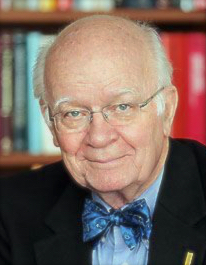The Metaphysical Moment
Citings of Sightings, in which we sometimes indulge, can be signs of narcissism, impoverished imagination, or a lack of research in quest of fresh things to say
 Citings of Sightings, in which we sometimes indulge, can be signs of narcissism, impoverished imagination, or a lack of research in quest of fresh things to say. But sometimes quotations of earlier columns—now archived, lost in cyberspace, or almost forgotten—can provide perspective on current topics. Take this week’s citation of our August 1, 2016, and September 26, 2016, Sightings on journalistic uses of “moments” as measures of movements. In these recent cases, we called attention to fashionable uses of the term in respect to religion, such as the Mormon Moment or, earlier, the Catholic and Methodist Moments, all of which have passed.
Citings of Sightings, in which we sometimes indulge, can be signs of narcissism, impoverished imagination, or a lack of research in quest of fresh things to say. But sometimes quotations of earlier columns—now archived, lost in cyberspace, or almost forgotten—can provide perspective on current topics. Take this week’s citation of our August 1, 2016, and September 26, 2016, Sightings on journalistic uses of “moments” as measures of movements. In these recent cases, we called attention to fashionable uses of the term in respect to religion, such as the Mormon Moment or, earlier, the Catholic and Methodist Moments, all of which have passed.
Those moments are no longer with us, but the noun remains in religious discourse. This past week it appeared in a headline in The Atlantic, where author Spencer Kornhaber spoke of a “Metaphysical Moment,” which possessed (or, back then some days ago, he could say, possesses) pop culture. In our fast-paced cultural chronicles, we no longer speak of “epochs” or “eras,” but of moments. Let’s explore the metaphysical pop culture version, with reliable author Kornhaber as our guide. He asks, “Have you ever questioned the nature of your reality?” He then points to pop culture TV shows as current questioners: HBO’s Westworld, The OA, Stranger Things, The Good Place, and Falling Water, or movies like Arrival and Doctor Strange.
Kornhaber explains: “lately, science fiction, theoretical physics, and spirituality have blended to offer not escapism but wait-there’s-more-ism”—shall we say, metaphysicalism moment-ized. To follow these programs, or books like them, is to encounter “near-death experiences,” “surreal landscapes populated by angels,” “the feeling of there being multiple universes,” “alien visitors,” all designed to deal with viewers who “want to be shown the unimaginable—but also be told it squares with the scientific world they already know.”
“Perhaps,” we read, “more than anything, these are all a secular take on the promise of the divine. Could not the Bible or most other religious texts [remember them?] be slotted into the same metaphysical storytelling tradition” as those which are currently fashionable? Kornhaber ends with the hunch that in “a time of falling church attendance and talk of widespread spiritual crisis, fiction may be stepping in to offer some of the imaginative comfort that religion has long provided.” This time, he suggests, the visions fit our era, for they “presume to be rooted in knowledge rather than in faith.”
Many moments ago—two millennia or so—all this was called “Gnosticism,” which never left our cultures, and returns in newly marketable forms. But act quickly, people who would like to profit should be warned: this metaphysical moment won’t endure. Can we remember the previous one? When did we last read or hear of the “New Age?” It’s no longer marketable. One of the most quoted writers of the age, through many moments, was G. K. Chesterton, who is often misquoted as saying something like, “When people stop believing in God, they don’t believe in nothing—they believe in anything.” (As the American Chesterton Society reports, this formulation actually comes from Émile Cammaerts’s 1937 book The Laughing Prophet: The Seven Virtues of G. K. Chesterton, though it expresses a thought that was “repeated over and over by Chesterton” in other forms.) Kornhaber is astutely observing and commenting on one current version of such belief, in this case in pop culture, as the sub-head of his article has it, “being the thrill of new religion.”
That observing the current “metaphysical moment,” being aware of it, beginning to understand it, is a challenge to the millions who belong, at one and the same time, to “knowledge communities” and “faith communities,” is obvious. We hope that the thoughtful and generous among them will meet, respect, learn from, and outlive this challenge posed by those who believe not in nothing, but in anything.
Resources
- Kornhaber, Spencer. “Pop Culture Is Having a Metaphysical Moment.” The Atlantic. January 5, 2017.
- Marty, Martin E. “The Moment.” Sightings. September 26, 2016.
- —. “The Mormon Moment and Others.” Sightings. August 1, 2016.
- “When Man Ceases to Worship God.” American Chesterton Society website. Accessed January 8, 2017.
Image: HBO's science-fiction/Western TV series Westworld | Photo credit: HBO
 Author, Martin E. Marty, is the Fairfax M. Cone Distinguished Service Professor Emeritus of the History of Modern Christianity at the University of Chicago Divinity School. His biography, publications, and contact information can be found at www.memarty.com. Author, Martin E. Marty, is the Fairfax M. Cone Distinguished Service Professor Emeritus of the History of Modern Christianity at the University of Chicago Divinity School. His biography, publications, and contact information can be found at www.memarty.com. |
Sightings is edited by Brett Colasacco, a PhD candidate in Religion, Literature, and Visual Culture at the University of Chicago Divinity School. Click here to subscribe to Sightings as a twice-weekly email. You can also follow us on Twitter.


